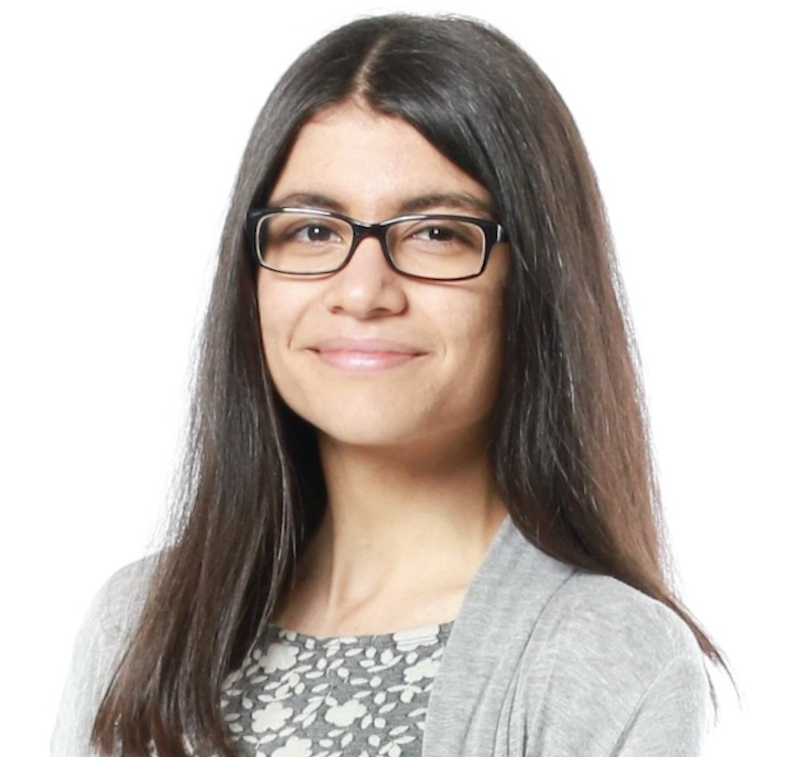Romina Mahinpei

MSE Student @ Princeton CS
I am a fully-funded Master of Science & Engineering (MSE) student at Princeton University’s Computer Science Department.
I received a Bachelor’s of Science (BSc) degree in Honours Computer Science along with a Mathematics Minor at the University of British Columbia (UBC). During my undergraduate degree, I had the pleasure of working with the Human-AI Interaction Lab, the Scientific Computing lab, and the Systopia lab at UBC’s Computer Science Department. As part of my MSE degree, I am currently working with the Humans and Machines lab directed by Dr. Manoel Horta Ribeiro.
My experiences span human-computer interaction (HCI), artificial intelligence (AI), applied machine learning, and systems research. My current research interests are in AI in education, human-centred AI, social computing, and computational social science.
Projects
Interactive Theorem Provers (ITPs) for Proof Education [Paper] [Code]

- Conducted a user study and case study analyzing how students develop proofs using the Coq ITP, the Lean ITP, and traditional methods, focusing on usability and support for CS proof techniques.
- Evaluated Coq and Lean using Nielsen’s usability heuristics to identify challenges such as unclear error messages and limited support for example-driven learning.
- Synthesized findings to inform improvements to ITP design and provide practical guidance for instructors considering ITPs in CS education.
An Emergent Bottom-Up Categorization of Students’ LLMs Usage in an Undergraduate Research Course [Paper]

- Conducted a thematic analysis of students’ self-reported usage patterns in third-year, multidisciplinary undergraduate research methods course targeting critical thinking skills.
- Developed a bottom-up categorization of how students use LLMs, grounded in actual student behaviour.
Provenance Design and Evolution in a Production ML Library [Poster] [Code] [Tutorial]


- Studied the current state of data workflows across users from academia (N = 6) and industry (N = 6) and identified ways in which data provenance could simplify those workflows.
- Designed, implemented, and tested the Model Card package for Tribuo, Oracle’s open-source Java ML library, to allow Tribuo users to create partially automated machine learning model documentation.
A Generalized Framework for Describing Question Randomization [Paper] [Poster] [Code] [Video]
- Conducted a thematic analysis of computer-based assessment questions in two undergraduate CS courses to investigate how instructors integrate randomization into their digital assessment questions.
- Developed a six-level framework to systematically categorize these randomization strategies and validated the framework by applying it to questions from an undergraduate data structures course (N = 86) and an undergraduate computer systems course (N = 100), assessing inter-rater reliability using percentage agreement and Gwet’s AC1 coefficient.
Mixed Precision Minimal Residual (MINRES) Method [Paper] [Code]
- Developed two mixed precision variants of the Minimal Residual (MINRES) method for solving sparse saddle-point linear systems, allowing users to adjust the precision of preconditioner solves and matrix-vector products.
- Implemented these variants and a baseline version using CUDA C and conducted a comparative performance study on NVIDIA’s GeForce RTX 3070 Ti, evaluating speed-up across three Maxwell and three Stokes saddle-point systems.
Publications
Research Papers
- Irix Xu*, Romina Mahinpei*, Steven Wolfman, and Firas Moosvi. 2026. Performance and Start-Time Trends in Asynchronous Computer-Based Assessments. [Paper]. In Proceedings of the 57th ACM Technical Symposium on Computer Science Education, Volume 2 (SIGCSE TS 2026). DOI: To Appear.
- Romina Mahinpei, Manoel Horta Ribeiro, Mae Milano. 2025. Interactive Theorem Provers for Proof Education. [Paper]. In Proceedings of the 2025 ACM SIGPLAN International Symposium on SPLASH-E (SPLASH-E ‘25). DOI: 10.1145/3758317.3759679.
- Ivan Orozco Vasquez*, Romina Mahinpei*, Noureddine Elouazizi, Cristina Conati. 2025. An Emergent Bottom-Up Categorization of Students’ LLMs Usage in an Undergraduate Research Course. [Paper]. Artificial Intelligence in Education (AIED 2025). Lecture Notes in Computer Science, Volume 15881. DOI: 10.1007/978-3-031-98462-4_17.
- Romina Mahinpei*, Iris Xu*, Steven Wolfman, and Firas Moosvi. 2025. A Generalized Framework for Describing Question Randomization. [Paper]. In Proceedings of the 2025 ACM Conference on International Computing Education, Volume 1 (ICER 2025). DOI: 10.1145/3702652.3744222.
- Romina Mahinpei, Chen Greif. 2024. Mixed Precision MINRES. [Paper]. SIAM Undergraduate Research Online, Volume 17 (SIURO). Society for Industrial and Applied Mathematics. DOI: 10.1137/24s1678489.
Workshop Papers & Posters
- Romina Mahinpei, Sofiia Druchyna, Xinran Bi. 2026. CNPE: A Framework for Challenges and Needs in Proof Education. [Poster]. In Proceedings of the 57th ACM Technical Symposium on Computer Science Education, Volume 2 (SIGCSE TS 2026). DOI: To Appear.
- Anha Khan, Romina Mahinpei, Maryam Hedayati, Victoria Dean and Ruth Fong. 2026. Characterizing the Relationship Between Generative AI, Student Behavior, and Learning Outcomes in Upper-Level CS Education: A Case Study in an Undergraduate Machine Learning Course. [Poster]. In Proceedings of the 57th ACM Technical Symposium on Computer Science Education, Volume 2 (SIGCSE TS 2026). DOI: To Appear.
- Adam Craig Pocock, Joseph Wonsil, Romina Mahinpei, Jack Sullivan, Margo Seltzer. 2025. Provenance Design and Evolution in a Production ML Library. [Workshop Paper]. Championing Open-source DEvelopment in ML Workshop @ ICML25 (CODEML @ICML 2025). OpenReview: https://openreview.net/forum?id=VrbDf3UDgv.
- Romina Mahinpei*, Iris Xu*, Steven Wolfman, and Firas Moosvi. 2024. A Generalized Framework for Describing Question Randomization. [Poster]. In Proceedings of the 55th ACM Technical Symposium on Computer Science Education, Volume 2 (SIGCSE TS 2024). DOI: 10.1145/3626253.3635599.
Teaching
As a teaching assistant, I’ve had the pleasure of assisting with the following courses:
- COS 324 Introduction to Machine Learning, Princeton (2024-2025)
- CPSC 313 Hardware & Operating Systems, UBC (2023-2024)
- CPSC 210 Software Construction & Development, UBC (2022-2023)
- Science One Differential & Integral Calculus, UBC (2021-2022)
